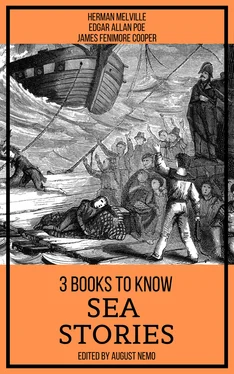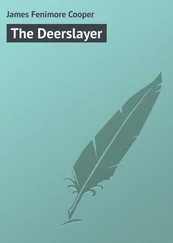I care not to perform this part of my task methodically; but shall be content to produce the desired impression by separate citations of items, practically or reliably known to me as a whaleman; and from these citations, I take it—the conclusion aimed at will naturally follow of itself.
First: I have personally known three instances where a whale, after receiving a harpoon, has effected a complete escape; and, after an interval (in one instance of three years), has been again struck by the same hand, and slain; when the two irons, both marked by the same private cypher, have been taken from the body. In the instance where three years intervened between the flinging of the two harpoons; and I think it may have been something more than that; the man who darted them happening, in the interval, to go in a trading ship on a voyage to Africa, went ashore there, joined a discovery party, and penetrated far into the interior, where he travelled for a period of nearly two years, often endangered by serpents, savages, tigers, poisonous miasmas, with all the other common perils incident to wandering in the heart of unknown regions. Meanwhile, the whale he had struck must also have been on its travels; no doubt it had thrice circumnavigated the globe, brushing with its flanks all the coasts of Africa; but to no purpose. This man and this whale again came together, and the one vanquished the other. I say I, myself, have known three instances similar to this; that is in two of them I saw the whales struck; and, upon the second attack, saw the two irons with the respective marks cut in them, afterwards taken from the dead fish. In the three-year instance, it so fell out that I was in the boat both times, first and last, and the last time distinctly recognised a peculiar sort of huge mole under the whale's eye, which I had observed there three years previous. I say three years, but I am pretty sure it was more than that. Here are three instances, then, which I personally know the truth of; but I have heard of many other instances from persons whose veracity in the matter there is no good ground to impeach.
Secondly: It is well known in the Sperm Whale Fishery, however ignorant the world ashore may be of it, that there have been several memorable historical instances where a particular whale in the ocean has been at distant times and places popularly cognisable. Why such a whale became thus marked was not altogether and originally owing to his bodily peculiarities as distinguished from other whales; for however peculiar in that respect any chance whale may be, they soon put an end to his peculiarities by killing him, and boiling him down into a peculiarly valuable oil. No: the reason was this: that from the fatal experiences of the fishery there hung a terrible prestige of perilousness about such a whale as there did about Rinaldo Rinaldini, insomuch that most fishermen were content to recognise him by merely touching their tarpaulins when he would be discovered lounging by them on the sea, without seeking to cultivate a more intimate acquaintance. Like some poor devils ashore that happen to know an irascible great man, they make distant unobtrusive salutations to him in the street, lest if they pursued the acquaintance further, they might receive a summary thump for their presumption.
But not only did each of these famous whales enjoy great individual celebrity—Nay, you may call it an ocean-wide renown; not only was he famous in life and now is immortal in forecastle stories after death, but he was admitted into all the rights, privileges, and distinctions of a name; had as much a name indeed as Cambyses or Caesar. Was it not so, O Timor Tom! thou famed leviathan, scarred like an iceberg, who so long did'st lurk in the Oriental straits of that name, whose spout was oft seen from the palmy beach of Ombay? Was it not so, O New Zealand Jack! thou terror of all cruisers that crossed their wakes in the vicinity of the Tattoo Land? Was it not so, O Morquan! King of Japan, whose lofty jet they say at times assumed the semblance of a snow-white cross against the sky? Was it not so, O Don Miguel! thou Chilian whale, marked like an old tortoise with mystic hieroglyphics upon the back! In plain prose, here are four whales as well known to the students of Cetacean History as Marius or Sylla to the classic scholar.
But this is not all. New Zealand Tom and Don Miguel, after at various times creating great havoc among the boats of different vessels, were finally gone in quest of, systematically hunted out, chased and killed by valiant whaling captains, who heaved up their anchors with that express object as much in view, as in setting out through the Narragansett Woods, Captain Butler of old had it in his mind to capture that notorious murderous savage Annawon, the headmost warrior of the Indian King Philip.
I do not know where I can find a better place than just here, to make mention of one or two other things, which to me seem important, as in printed form establishing in all respects the reasonableness of the whole story of the White Whale, more especially the catastrophe. For this is one of those disheartening instances where truth requires full as much bolstering as error. So ignorant are most landsmen of some of the plainest and most palpable wonders of the world, that without some hints touching the plain facts, historical and otherwise, of the fishery, they might scout at Moby Dick as a monstrous fable, or still worse and more detestable, a hideous and intolerable allegory.
First: Though most men have some vague flitting ideas of the general perils of the grand fishery, yet they have nothing like a fixed, vivid conception of those perils, and the frequency with which they recur. One reason perhaps is, that not one in fifty of the actual disasters and deaths by casualties in the fishery, ever finds a public record at home, however transient and immediately forgotten that record. Do you suppose that that poor fellow there, who this moment perhaps caught by the whale-line off the coast of New Guinea, is being carried down to the bottom of the sea by the sounding leviathan—do you suppose that that poor fellow's name will appear in the newspaper obituary you will read to-morrow at your breakfast? No: because the mails are very irregular between here and New Guinea. In fact, did you ever hear what might be called regular news direct or indirect from New Guinea? Yet I tell you that upon one particular voyage which I made to the Pacific, among many others we spoke thirty different ships, every one of which had had a death by a whale, some of them more than one, and three that had each lost a boat's crew. For God's sake, be economical with your lamps and candles! not a gallon you burn, but at least one drop of man's blood was spilled for it.
Secondly: People ashore have indeed some indefinite idea that a whale is an enormous creature of enormous power; but I have ever found that when narrating to them some specific example of this two-fold enormousness, they have significantly complimented me upon my facetiousness; when, I declare upon my soul, I had no more idea of being facetious than Moses, when he wrote the history of the plagues of Egypt.
But fortunately the special point I here seek can be established upon testimony entirely independent of my own. That point is this: The Sperm Whale is in some cases sufficiently powerful, knowing, and judiciously malicious, as with direct aforethought to stave in, utterly destroy, and sink a large ship; and what is more, the Sperm Whale has done it.
First: In the year 1820 the ship Essex, Captain Pollard, of Nantucket, was cruising in the Pacific Ocean. One day she saw spouts, lowered her boats, and gave chase to a shoal of sperm whales. Ere long, several of the whales were wounded; when, suddenly, a very large whale escaping from the boats, issued from the shoal, and bore directly down upon the ship. Dashing his forehead against her hull, he so stove her in, that in less than "ten minutes" she settled down and fell over. Not a surviving plank of her has been seen since. After the severest exposure, part of the crew reached the land in their boats. Being returned home at last, Captain Pollard once more sailed for the Pacific in command of another ship, but the gods shipwrecked him again upon unknown rocks and breakers; for the second time his ship was utterly lost, and forthwith forswearing the sea, he has never tempted it since. At this day Captain Pollard is a resident of Nantucket. I have seen Owen Chace, who was chief mate of the Essex at the time of the tragedy; I have read his plain and faithful narrative; I have conversed with his son; and all this within a few miles of the scene of the catastrophe. [6]
Читать дальше












